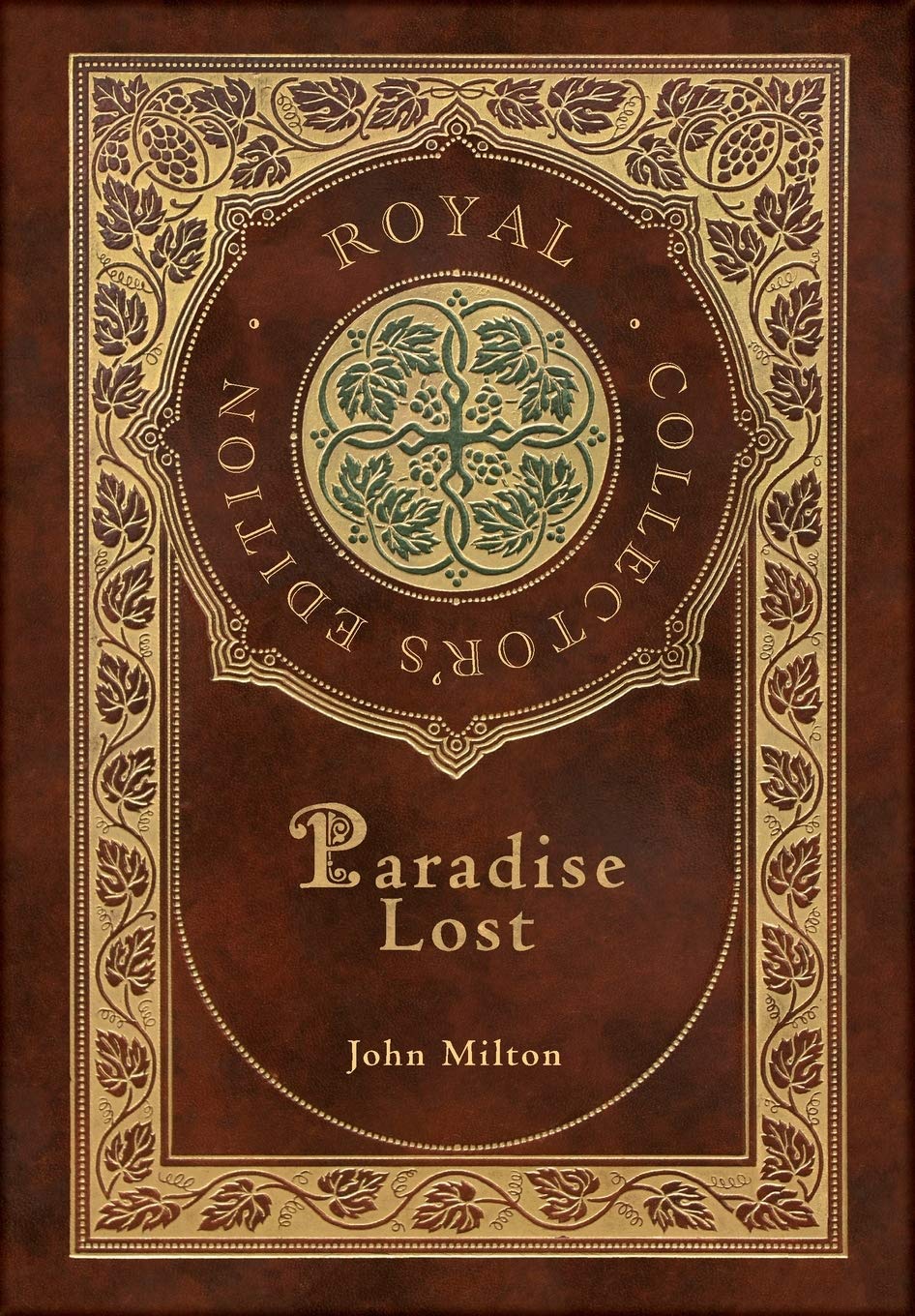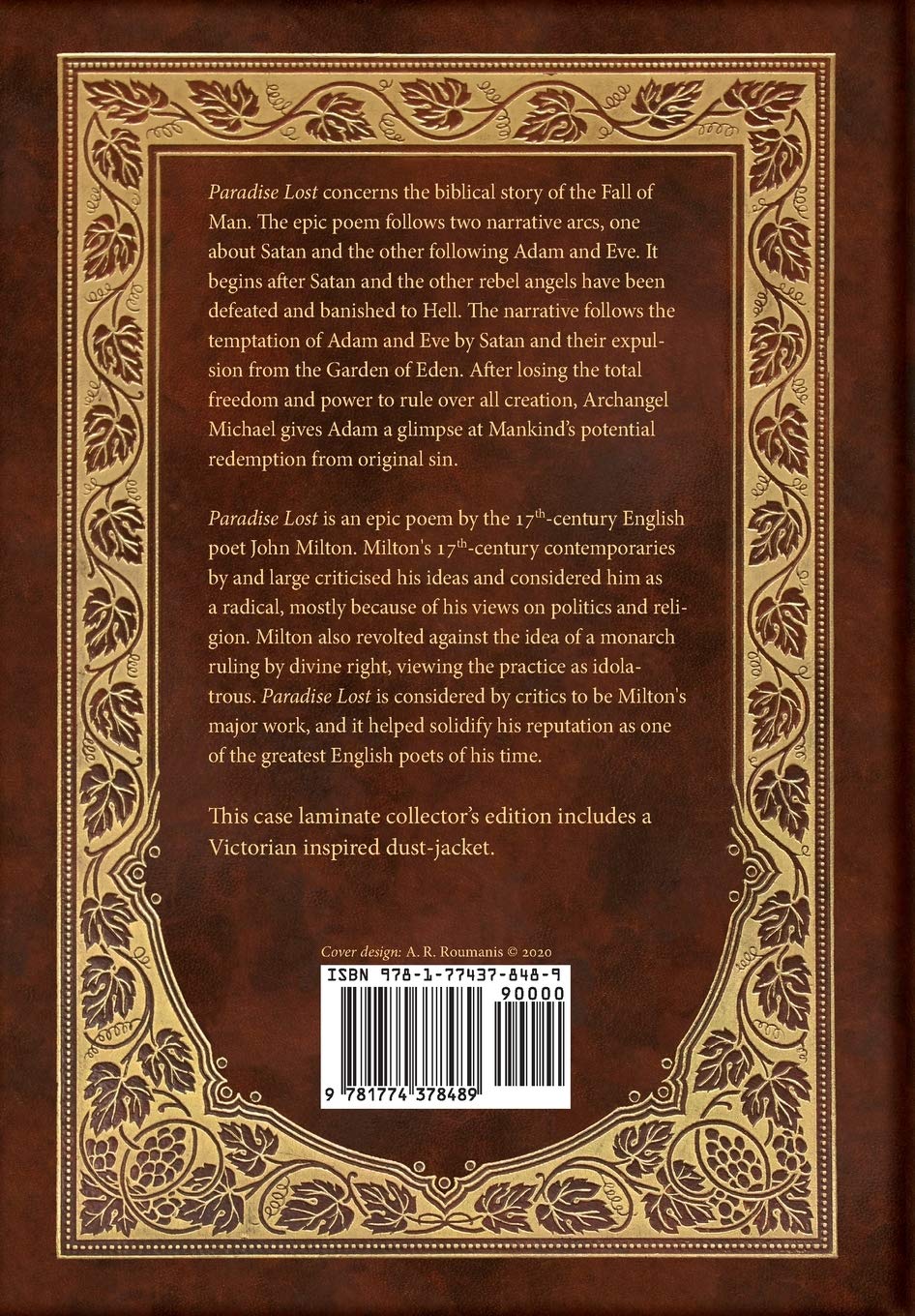Paradise Lost (Royal Collector's Edition) (Case Laminate Hardcover with Jacket)
Paradise Lost (Royal Collector's Edition) (Case Laminate Hardcover with Jacket)
Paradise Lost concerns the biblical story of the Fall of Man. It follows two narrative arcs, one about Satan and the other Adam and Eve. The narrative follows the temptation of Adam and Eve by Satan and their expulsion from the Garden of Eden.
Hardcover, 1.28 pounds, 280 pages, 0.75" H x 9.0" L x 6.0" W
Publisher Marketing:
Paradise Lost concerns the biblical story of the Fall of Man. The epic poem follows two narrative arcs, one about Satan and the other following Adam and Eve. It begins after Satan and the other rebel angels have been defeated and banished to Hell. The narrative follows the temptation of Adam and Eve by Satan and their expulsion from the Garden of Eden. After losing the total freedom and power to rule over all creation, Archangel Michael gives Adam a glimpse at Mankind's potential redemption from original sin.
Paradise Lost is an epic poem by the 17th-century English poet John Milton. Milton's 17th-century contemporaries by and large criticized his ideas and considered him as a radical, mostly because of his views on politics and religion. Milton also revolted against the idea of a monarch ruling by divine right, viewing the practice as idolatrous. Paradise Lost is considered by critics to be Milton's major work, and it helped solidify his reputation as one of the greatest English poets of his time.
This case laminate collector's edition includes a Victorian inspired dust-jacket.
About the Author:
John Milton (9 December 1608 - 8 November 1674) was an English poet and intellectual, who served as a civil servant for the Commonwealth of England under its Council of State and later under Oliver Cromwell. He wrote at a time of religious flux and political upheaval, and is best known for his epic poem Paradise Lost (1667). Writing in English, Latin, Greek, and Italian, he achieved international renown within his lifetime, and his celebrated Areopagitica (1644), written in condemnation of pre-publication censorship, is among history's most influential and impassioned defences of freedom of speech and freedom of the press. His desire for freedom extended into his style: he introduced new words (coined from Latin) to the English language, and was the first modern writer to employ non-rhymed verse outside of the theatre or translations. William Hayley's 1796 biography called him the greatest English author, and he remains generally regarded as one of the preeminent writers in the English language, though critical reception has oscillated in the centuries since his death (often on account of his republicanism). Samuel Johnson praised Paradise Lost as "a poem which...with respect to design may claim the first place, and with respect to performance, the second, among the productions of the human mind," though he (a Tory and recipient of royal patronage) described Milton's politics as those of an "acrimonious and surly republican." Poets such as William Blake, William Wordsworth and Thomas Hardy revered him.
Couldn't load pickup availability
Share




